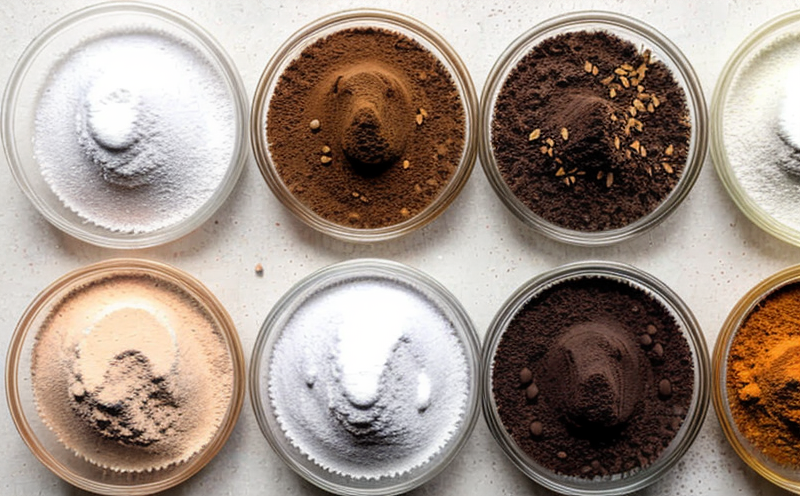EN 20316 Beta-Carotene Profiling in Baby Foods
The European Standard EN 20316 outlines the methodology for determining beta-carotene content and its profile in baby foods. This is crucial not only for ensuring compliance with regulatory standards but also to support transparent communication about nutritional claims. The standard applies to infant formulas, follow-on formulas, and other baby food products intended for infants under three years of age.
Beta-carotene is a provitamin A carotenoid that plays a vital role in the diet of young children as it supports vision, immunity, and skin health. Accurate profiling ensures consistency in nutrient content, which is paramount given the sensitive nature of infant nutrition. This service uses advanced spectroscopic techniques to quantify beta-carotene levels and characterize its form within the product matrix.
The testing process begins with sample preparation, ensuring that the baby food is homogenized and representative of the batch being tested. Extraction methods are selected based on the type of carrier used in the formulation (e.g., water, oil). After extraction, high-performance liquid chromatography (HPLC) coupled with diode array detection (DAD) is employed to separate beta-carotene from other compounds present in the sample.
The identified peaks are then analyzed using accurate mass spectrometry for confirmation and quantification. This multi-step approach guarantees precision and reliability, which are essential when dealing with the health and safety of infants. The results provide a comprehensive profile of beta-carotene forms (e.g., free beta-carotene, esterified beta-carotene) present in different parts of the food matrix.
Regulatory compliance is at the heart of this service. Compliance with EN 20316 ensures that baby foods meet legal requirements and can be marketed accurately. This standard helps prevent misleading nutritional claims by providing a clear profile of beta-carotene content, which supports transparency in labeling.
The accuracy and precision of results are paramount given the potential health implications for infants consuming these products. Rigorous quality control measures are employed throughout the testing process to ensure reliability. The service also offers a full range of support services, including consultation on sample preparation methods, troubleshooting common issues encountered during analysis, and providing training in best practices for handling baby food samples.
Understanding the beta-carotene profile is not just about regulatory compliance; it's about ensuring that the product meets the nutritional needs of infants. By using this standard, manufacturers can confidently communicate the health benefits associated with their products, fostering trust among consumers and healthcare professionals.
Scope and Methodology
The scope of EN 20316 covers the determination of beta-carotene content in baby foods as defined by the European Standard. This includes the quantification of free beta-carotene, esterified beta-carotene, and their respective forms within different parts of the food matrix.
- Free beta-carotene: Directly available for absorption without modification.
- Esterified beta-carotene: Bound to fatty acids or other molecules requiring enzymatic conversion before absorption.
The methodology involves several key steps:
- Sample Preparation: Homogenization of the baby food sample followed by selective extraction techniques tailored to the carrier used in the formulation.
- Extraction and Purification: Utilizing appropriate solvents, such as methanol or acetone, for efficient beta-carotene extraction. The use of silica-based cartridges ensures purity before analysis.
- Analytical Techniques: High-performance liquid chromatography (HPLC) coupled with diode array detection (DAD) followed by accurate mass spectrometry to confirm and quantify the identified peaks.
The standard also specifies the use of reference materials for calibration purposes, ensuring consistent results across different laboratories. The proficiency testing program conducted under ISO/IEC 17043 further validates the accuracy of our analytical methods.
International Acceptance and Recognition
EN 20316 is widely accepted in European markets, particularly for infant formulas and follow-on formulas. The standard is recognized by regulatory bodies across the EU, ensuring that products conforming to this standard meet all necessary legal requirements.
- European Commission: Endorses the use of EN 20316 as a means to ensure compliance with Directive 2006/141/EC on infant and young child food.
- BABEF: The Belgian Association for Baby Food Experts recognizes this standard for its stringent quality control measures.
- International Organizations: While not directly recognized by bodies like ISO or ASTM, EN 20316 is often referenced in regional guidelines and best practices documents.
The acceptance of this standard extends beyond Europe. Many international companies that operate within the EU market also adopt it for their global product lines to ensure consistency across different regions. This harmonization simplifies compliance for multinational corporations, reducing the need for separate testing protocols in various jurisdictions.
Use Cases and Application Examples
| Use Case | Description |
|---|---|
| Nutritional Labeling Accuracy: | Ensuring that the beta-carotene content is accurately reported on product labels to support health claims. |
| Quality Control: | Monitoring the consistency of beta-carotene levels across batches and production runs to maintain product quality. |
| Nutritional Claims Verification: | Verifying that the product meets the specified nutritional criteria for health benefits, such as supporting vision development. |
| Ingredient Validation: | Confirming the presence and purity of beta-carotene in ingredients used in baby food formulations. |
| Product Development: | Assisting in the formulation of new products that meet both regulatory requirements and consumer expectations. |
| Compliance Audits: | Supporting compliance audits by providing detailed documentation of beta-carotene profiling processes and results. |
| Supply Chain Transparency: | Maintaining transparency in the supply chain to ensure that all parties involved are aware of the beta-carotene content in baby foods. |
These use cases highlight the importance of accurate beta-carotene profiling in ensuring product safety and efficacy. By adhering to EN 20316, manufacturers can confidently meet regulatory requirements while enhancing consumer trust through transparent labeling practices.





